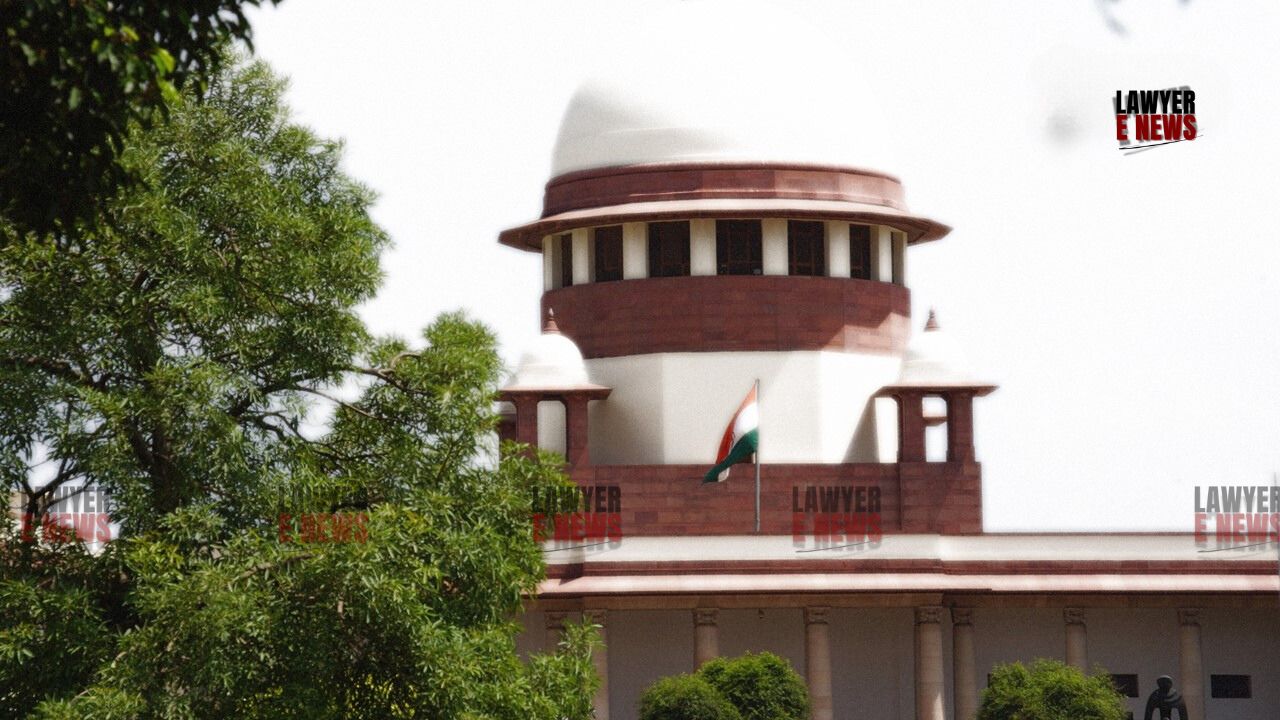-
by Admin
17 February 2026 4:58 AM



Supreme Court Refuses Specific Performance of Sale Agreement - “A Buyer Who Accepts Refund and Fails to Challenge Cancellation Cannot Seek Enforcement of Sale Agreement” - Supreme Court of India delivered a significant ruling clarifying the law on readiness and willingness in specific performance suits. The Court held that a buyer who accepts partial refund and fails to seek declaratory relief against cancellation of the agreement cannot maintain a suit for specific performance.
Rejecting the buyer’s claim under an unregistered Agreement to Sell dated January 25, 2008, the Court observed: “The conduct of the Respondent No.1-buyer in encashing the demand drafts establishes beyond doubt that she was not willing to perform her part of the Agreement to Sell.”
“Readiness and Willingness Must Continue Throughout; Mere Filing of Suit Is Not Sufficient”
The Court’s reasoning revolved around a critical fact: the buyer, after filing a suit for specific performance, encashed five demand drafts totaling Rs. 2,11,000/-, which had been sent by the seller as a refund along with two of the three post-dated cheques initially issued by the buyer.
Quoting from its prior rulings, including Kamal Kumar v. Premlata Joshi, the Court reaffirmed: “Continuous readiness and willingness on the part of the plaintiff is a condition precedent for grant of the relief of specific performance.”
It noted that: “It is not enough to show readiness at the time of contract or filing of suit — the plaintiff must prove it continued till the date of decree.”
Background: Agreement Contested, Suit Filed, Refund Accepted
The case stemmed from an unregistered Agreement to Sell dated 25 January 2008.
The buyer claimed she paid Rs. 2.51 lakh in cash and issued three post-dated cheques of Rs. 2.5 lakh each.
The seller later denied the agreement, alleging fraud, and sent a cancellation letter dated 7 February 2008 enclosing Rs. 2.11 lakh by demand drafts and two cheques.
The buyer encashed the drafts in July 2008, after filing a suit in May 2008.
The Trial Court decreed specific performance in 2018; the High Court affirmed it in 2024.
However, the Supreme Court found that the buyer never challenged the cancellation letter, nor disclosed in her plaint that she had received and cashed the refund.
“Failure to Seek Declaration That Cancellation Was Invalid Is Fatal”
The Supreme Court stressed that a suit for specific performance cannot be maintained without a subsisting agreement. Once the seller cancelled the agreement and refunded most of the earnest money, the buyer was required to seek a declaratory relief challenging the cancellation.
“Existence of a valid agreement is sine qua non for grant of specific performance.”
Citing I.S. Sikandar v. K. Subramani and the recent R. Kandasamy case (2024), the Court ruled: “In absence of a prayer challenging the cancellation, the suit itself becomes nonmaintainable.”
“Buyer Suppressed Material Facts — Disentitled to Discretionary Relief”
The Court also faulted the buyer for suppressing material facts — notably the encashment of refund — in her pleadings. It relied on Citadel Fine Pharmaceuticals v. Ramaniyam Real Estates: “A party seeking specific performance must disclose all facts candidly. Suppression disentitles a party from equitable relief.”
The respondent buyer challenged the appellant's standing, but the Court held that Sangita Sinha, the appellant, was validly impleaded as a beneficiary under the seller’s Will dated 23 September 2002, and thus had locus standi.
Allowing the appeal, the Supreme Court: Set aside the Trial Court and High Court judgments. Declared the sale deed executed in favour of the buyer as null and void. Directed the appellant to refund Rs. 24,61,000/- (sale consideration deposited by the buyer in court). “The Agreement to Sell cannot be specifically enforced,” concluded the Court.
Date of Decision: April 4, 2025
